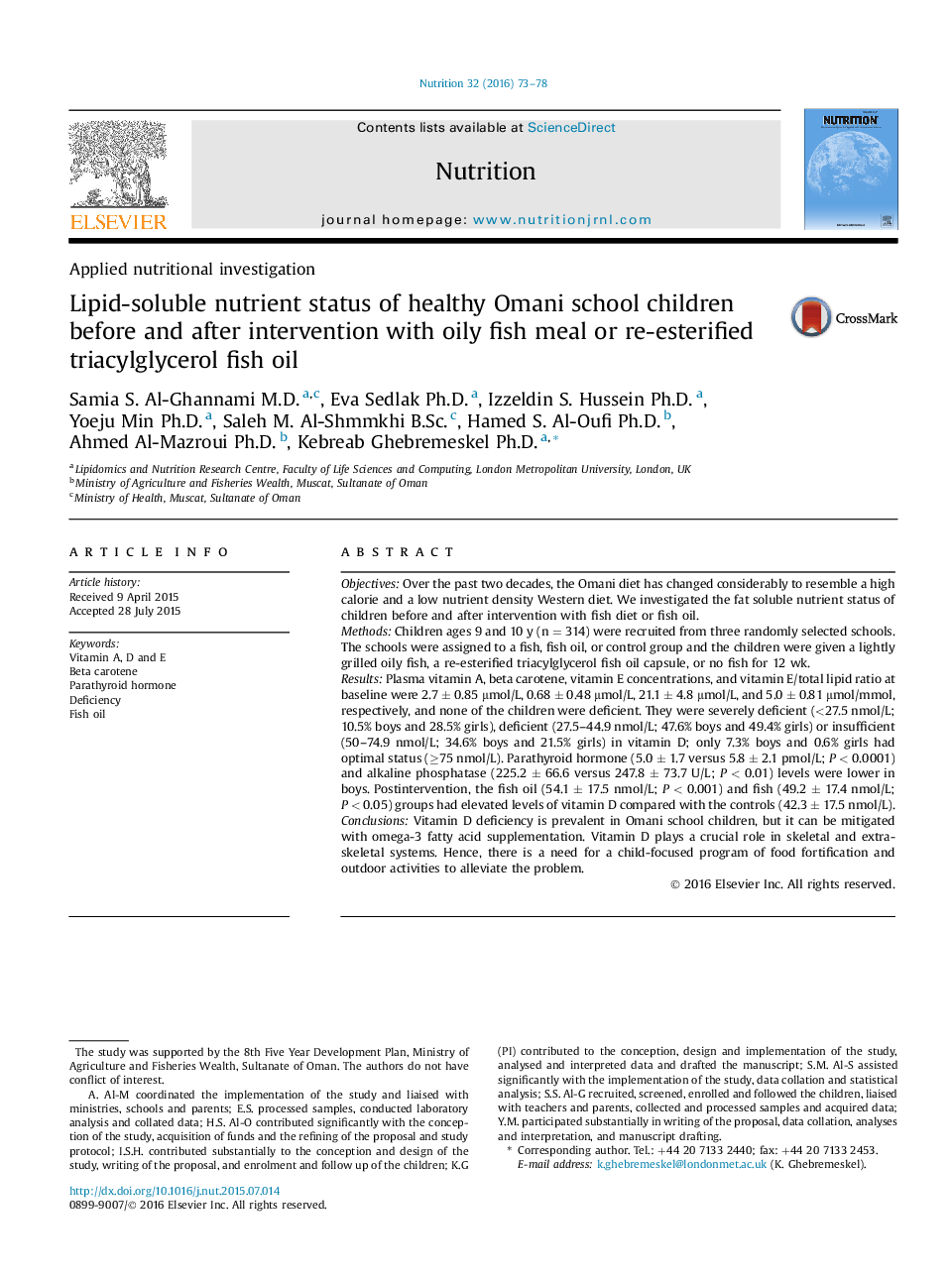| کد مقاله | کد نشریه | سال انتشار | مقاله انگلیسی | نسخه تمام متن |
|---|---|---|---|---|
| 6089173 | 1208537 | 2016 | 6 صفحه PDF | دانلود رایگان |
- Plasma fat soluble nutrients were assessed in children before and after intervention with fish oil or oily fish.
- Most of the children were deficient in vitamin D at baseline before supplementation.
- Fish oil and fish meal improved plasma beta carotene, but not vitamin A or E levels.
- Vitamin D deficiency was improved by supplementation with fish oil devoid of the vitamin.
ObjectivesOver the past two decades, the Omani diet has changed considerably to resemble a high calorie and a low nutrient density Western diet. We investigated the fat soluble nutrient status of children before and after intervention with fish diet or fish oil.MethodsChildren ages 9 and 10 y (n = 314) were recruited from three randomly selected schools. The schools were assigned to a fish, fish oil, or control group and the children were given a lightly grilled oily fish, a re-esterified triacylglycerol fish oil capsule, or no fish for 12 wk.ResultsPlasma vitamin A, beta carotene, vitamin E concentrations, and vitamin E/total lipid ratio at baseline were 2.7 ± 0.85 μmol/L, 0.68 ± 0.48 μmol/L, 21.1 ± 4.8 μmol/L, and 5.0 ± 0.81 μmol/mmol, respectively, and none of the children were deficient. They were severely deficient (<27.5 nmol/L; 10.5% boys and 28.5% girls), deficient (27.5-44.9 nmol/L; 47.6% boys and 49.4% girls) or insufficient (50-74.9 nmol/L; 34.6% boys and 21.5% girls) in vitamin D; only 7.3% boys and 0.6% girls had optimal status (â¥75 nmol/L). Parathyroid hormone (5.0 ± 1.7 versus 5.8 ± 2.1 pmol/L; P < 0.0001) and alkaline phosphatase (225.2 ± 66.6 versus 247.8 ± 73.7 U/L; P < 0.01) levels were lower in boys. Postintervention, the fish oil (54.1 ± 17.5 nmol/L; P < 0.001) and fish (49.2 ± 17.4 nmol/L; P < 0.05) groups had elevated levels of vitamin D compared with the controls (42.3 ± 17.5 nmol/L).ConclusionsVitamin D deficiency is prevalent in Omani school children, but it can be mitigated with omega-3 fatty acid supplementation. Vitamin D plays a crucial role in skeletal and extraskeletal systems. Hence, there is a need for a child-focused program of food fortification and outdoor activities to alleviate the problem.
Journal: Nutrition - Volume 32, Issue 1, January 2016, Pages 73-78
